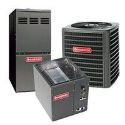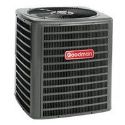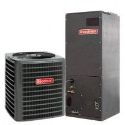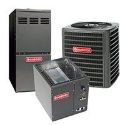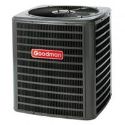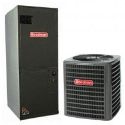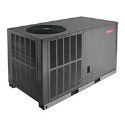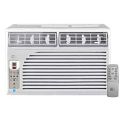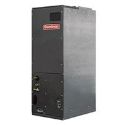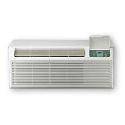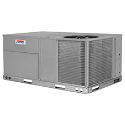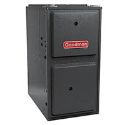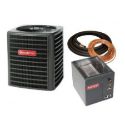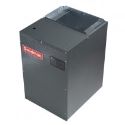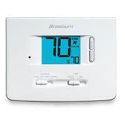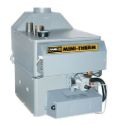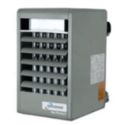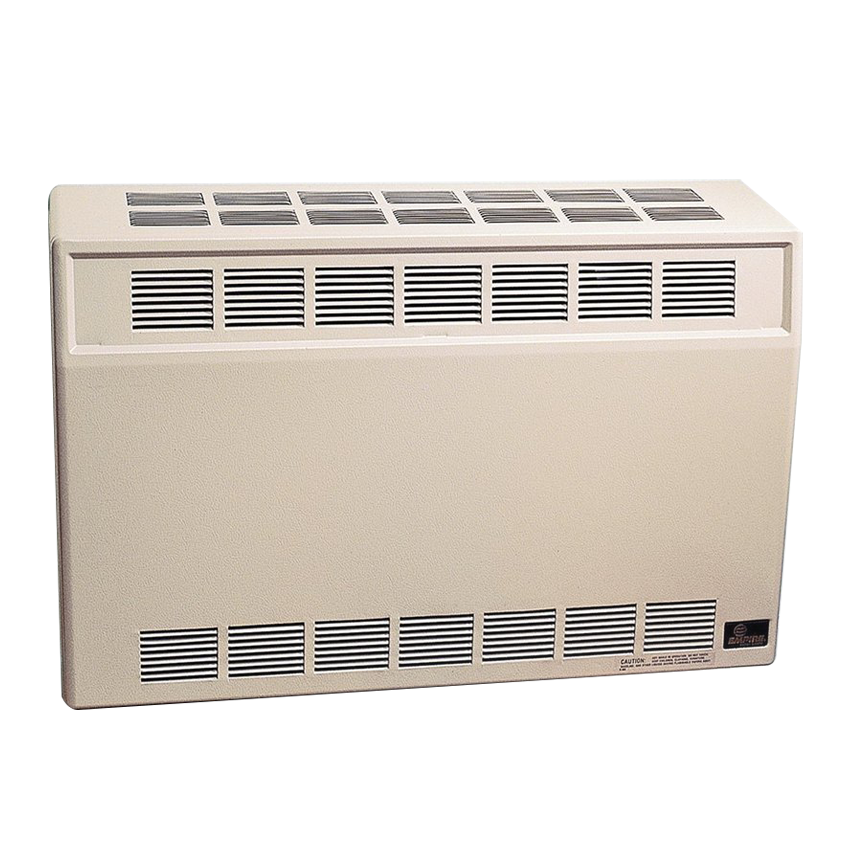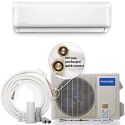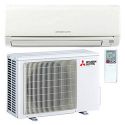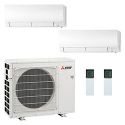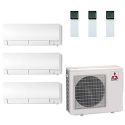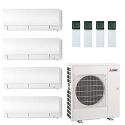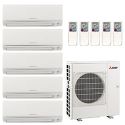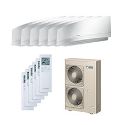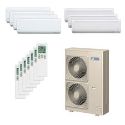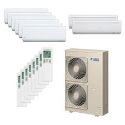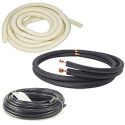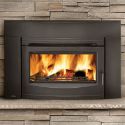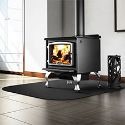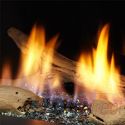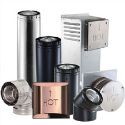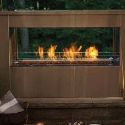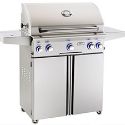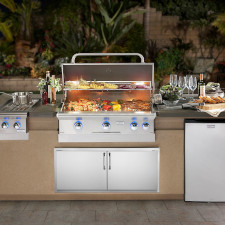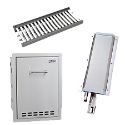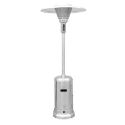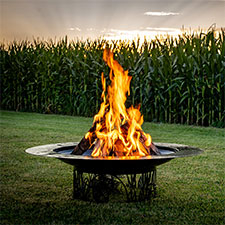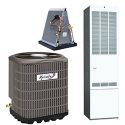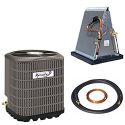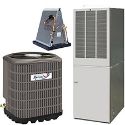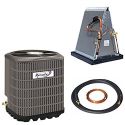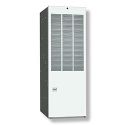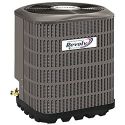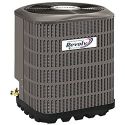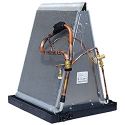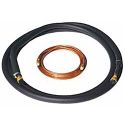Heat pumps have changed the way we think about climate control in our homes and businesses. It used to be simple: air conditioners cool, furnaces heat, and that was it. But then along came the heat pump concept, and the terminology changed … slowly. Even now, there remains some confusion between the terms heat pump vs AC.
What is a heat pump?
You might have heard the term "air conditioner with a heat pump." While that's not too far off the mark, it isn't exactly correct. A heat pump is an air conditioner - an air conditioner that cools in the summer and heats in the winter. All heat pumps are air conditioners but not all air conditioners are heat pumps.
Heat pumps are air conditioners configured with the ability to reverse the air conditioning process and provide heat instead of cooling. Appearance-wise there is practically no discernible difference between a standard air conditioner and a heat pump. You might be able to spot the reversing valve - a horizontal brass pipe near the coil fins that allows a heat pump to function - but that's essentially the only visible difference.
The Basic Air Conditioning Process
Like all air conditioners, heat pump air conditioning units do not produce cool air. They isolate it. They don't produce heat either. They find it.
We'll dive into it in detail below, but basically what that means is that a heat pump pulls heat out of the air. In air conditioning mode it pulls that heat out of your home and expels it outside. In heating mode, it pulls heat from the outside air and pumps it into the house.
The Big Squeeze
Your heat pump air conditioning system includes three essential components: the condenser/compresser, the evaporator coils and the air handler.
Trapped inside the coils is refrigerant gas, which is compressed by the compressor. This greatly increases (not decreases, as some might expect) the temperature of the refrigerant gas, turning it into a liquid. The super-heated liquid is forced indoors to the evaporator coils.
Heat Rushes In
In the evaporator coils, the super-hot liquid circulates through all the turns and windings and cools back to a gaseous state. While this is happening, heat in the house, pushed by the air handler, rushes in, attracted to the fins surrounding the coils. Thermodynamic principles state that heat moves from a place of higher temperature to one of lower temperature.
Heat, now extracted from the interior, is then expelled into the atmosphere outside. When heat vacates, what remains is cold.
The Cool Breeze
The air handler blows across the cool coils and fins and delivers refreshing cool air to the house via a network of ducts and cycles stale air through the return air ducts to renew the heat transfer cycle.
The Heat Pump Throws it in Reverse
In the winter, the heat pump air conditioner kicks the process into reverse. The evaporator coils and condenser coils swap jobs.
The flow of refrigerant runs in the opposite direction, and the indoor evaporator coils act as condenser coils. The super-cooled refrigerant flows from indoors to outdoors, where the condenser - now behaving like an evaporator coil - extracts heat from the atmosphere.
The heat is then delivered indoors via the air handler.
Getting That Toasty Feeling in Extreme Cold
Heat pumps can pull warmth out of the air even in the winter. Make sure you check the capabilities of your heat pump before purchasing to ensure at what temperatures it can heat without assistance. Some heat pumps are effective only to about 35° or 30° F, but others with more advanced technology make it possible to extract heat from atmospheric temperatures as low as -15° F.
In extreme cold, and long-lasting cold snaps, the heat pump can struggle to provide ultimate comfort. For those times, standard heat coils, heat strips or electric furnaces are great back-up options.
The back-up options require more energy and should be switched off as soon as the winter weather returns to a more normal state.
Is a Heat Pump Right for Me?
Considering the innovations in heat pump technology, heat pumps make sense for many millions of homeowners across the country. Some people may have a heat pump system in their home and not even realize it.
In deciding between heat pump systems and traditional AC systems, geographical location is a factor, but so is your access to fuel types.
If you live in an area where gas is considerably more expensive than electric, a heat pump system is a great idea, even if you must supplement it with back-up heating. If gas (natural gas or propane) is cheaper, relative to electricity, then a standard system with a gas furnace or dual fuel furnace will be a better choice. Often, an air conditioner system with a gas furnace is a good option for those living in town or cities with colder climates and access to cheap nature gas.
If gas and electricity are close in price with no significant difference, then your local climate should factor in. Generally, the colder the climate, the more often you might have to resort to back-up heat, so in that circumstance, a traditional air conditioner and furnace system would be a better choice. For milder winters, a heat pump AC would be the way to go. Check out our resource library to learn more about standard heat pumps v. split system heat pumps.
Questions and Answers
- Does a heat pump use less electricity than an air conditioner? - A heat pump generates four times the energy than it consumes, so yes, a heat pump uses less electricity that an air conditioner. Heat pumps also dehumidify better than an air conditioner.
- Is a heat pump and air conditioner the same thing? - For cooling, yes. A heat pump and an air conditioner are the same thing. For heating, no. A heat pump reverses the air conditioning process, providing heat instead of cooling, whereas an air conditioner provides only cooling.
- Do heat pumps cool as well as air conditioners? Yes. For cooling purposes, they're the same thing anyway. The adaptability of a heat pump to provide heat in the winter does not detract from its cooling ability in the summer.
 Shopping Cart
Shopping Cart


